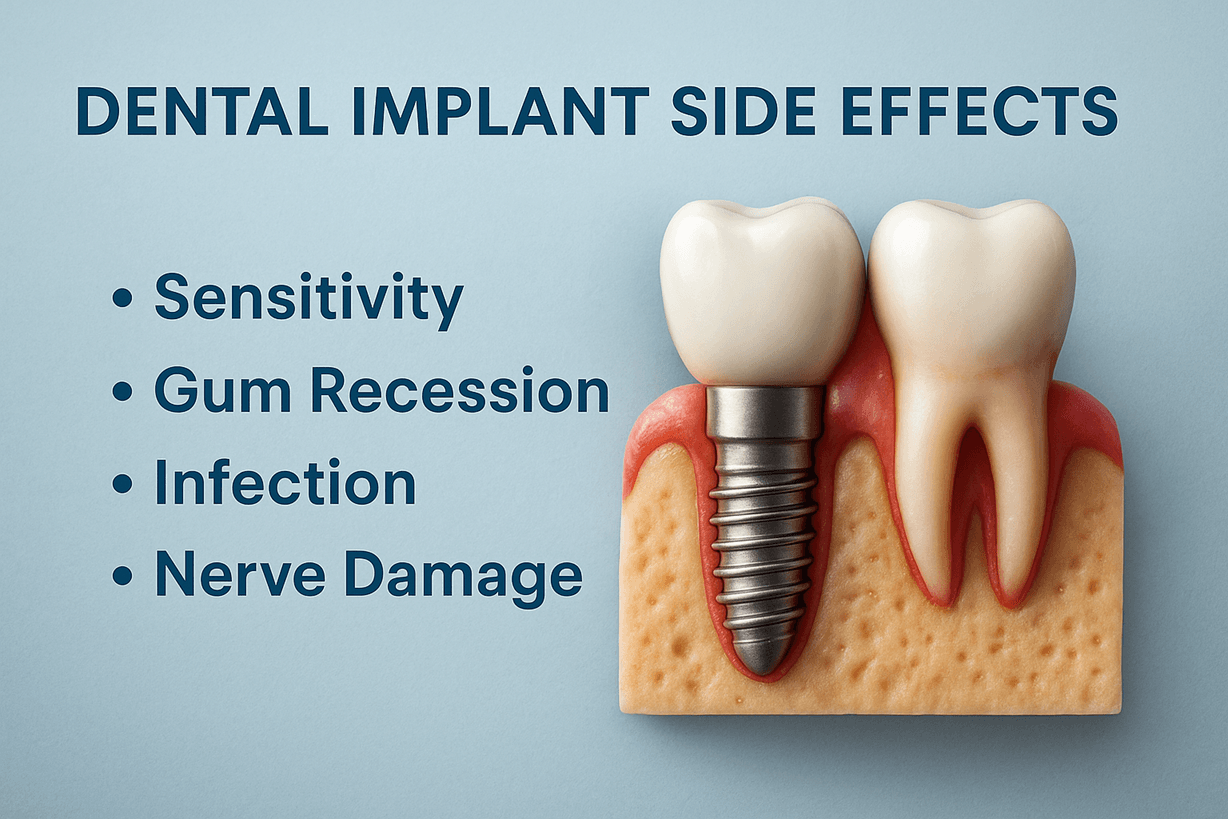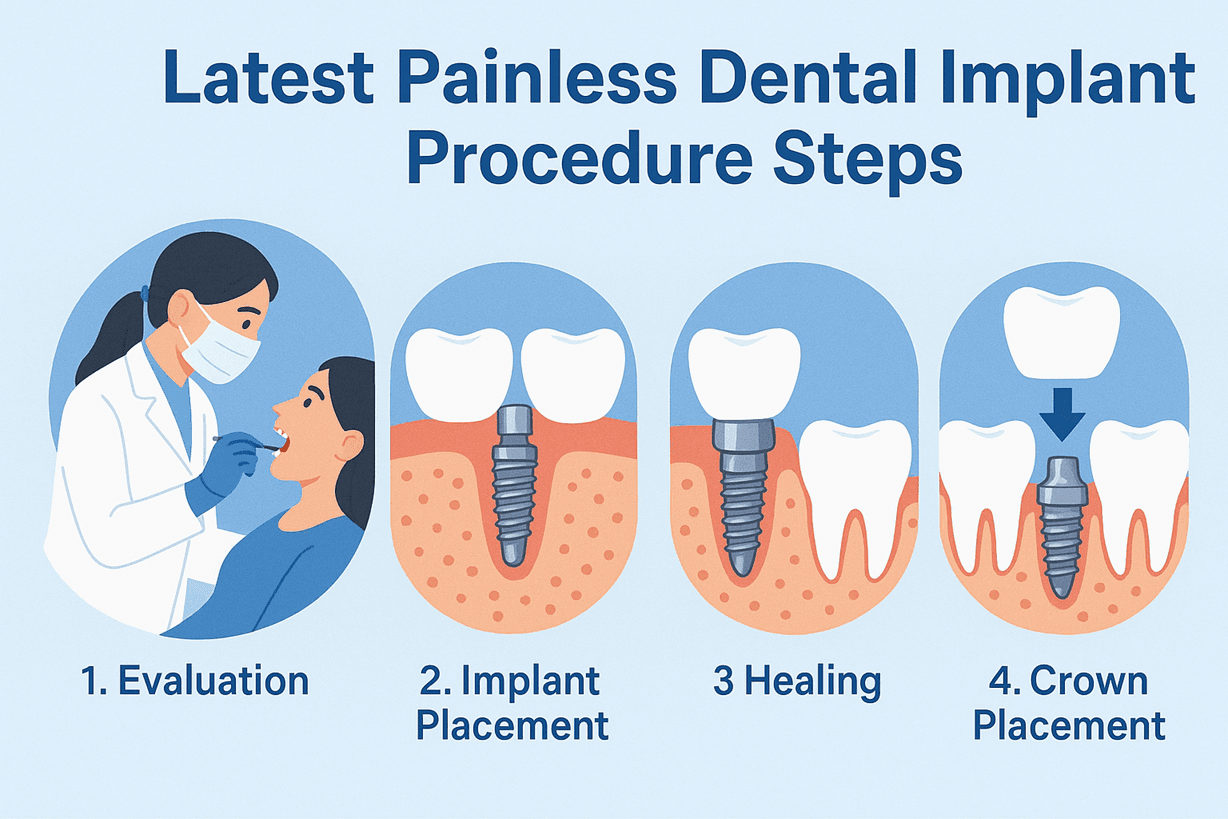Contents
- Understanding Dental Bridges and Dental Implants
- Pros and Cons of Dental Bridges: Exploring the Benefits and Limitations
- The Advantages and Disadvantages of Dental Implants
- Dental Bridges: A Reliable Solution for Missing Teeth and Their Functionality
- Dental Implants: Achieving Long-Term Tooth Replacement with Superior Durability
- Comparing the Cost Factors: Dental Bridges vs. Dental Implants
- Maintenance and Care: Dental Bridge vs. Dental Implant
- The Aesthetic Appeal: Dental Bridges and Dental Implants for a Natural-Looking Smile
- Choosing the Best Tooth Replacement Option: Factors to Consider
- Conclusion
- Frequently Asked Questions

Dental bridges and dental implants are two common choices which are effective methods for restoring missing teeth.
Understanding the primary differences between the two approaches is crucial because each has its own advantages and considerations.
The functioning, longevity, price, process, maintenance, and cosmetic appeal of dental bridges and dental implants will all be thoroughly compared in this article.
You can choose the tooth replacement option that is ideal for your needs by weighing the advantages and disadvantages of each one.
Understanding Dental Bridges and Dental Implants
To replace missing teeth, two different techniques are used: dental bridges and dental implants.
- An artificial tooth (pontic) is used as part of a dental bridge, and the neighbouring teeth's dental crowns serve to secure the pontic in place.
- Dental implants, on the other hand, entail the surgical insertion of a titanium implant into the jawbone that functions as an artificial tooth root for securing a dental crown.
Both methods, though they can restore your smile and enhance your oral health, have some key differences.
Pros and Cons of Dental Bridges: Exploring the Benefits and Limitations
Dental bridges can restore appropriate chewing function, stop adjacent teeth from slipping, and improve the appearance of your mouth, among other advantages.
Additionally, compared to dental implants, bridges are a significantly speedier and less intrusive treatment.
Dental bridges do, however, have several drawbacks, including the need for healthy adjacent teeth to act as support, the possibility of decay or other harm to these teeth, and a shorter lifespan than implants.
The Advantages and Disadvantages of Dental Implants
Dental implants provide numerous advantages, including superior durability, long-term functionality, and prevention of bone loss in the jaw.
Implants also eliminate the need for adjacent teeth to support the restoration, which helps preserve their integrity.
However, dental implants require a more complex and time-consuming surgical procedure, and they may have a higher initial cost compared to bridges.
Additionally, certain medical conditions or insufficient jawbone density can affect the suitability of implants for some individuals.
Dental Bridges: A Reliable Solution for Missing Teeth and Their Functionality
Dental bridges bridge the space left by a lost tooth with an artificial tooth, restoring chewing and speaking functionality. The bridge is stabilised by support from the nearby teeth.
Most patients experience little recovery time following the placement of dental bridges, allowing them to rapidly resume using their restored teeth.
The supporting teeth must be structurally solid for the bridge to be successful over the long term, thus it's crucial to take this into account.
Dental Implants: Achieving Long-Term Tooth Replacement with Superior Durability
Dental implants offer a permanent and durable solution for missing teeth. By surgically placing a titanium implant into the jawbone, the implant fuses with the bone over time, providing a strong foundation for a dental crown.
This ensures stability and functionality comparable to natural teeth. Dental implants also stimulate the jawbone, preventing bone loss and maintaining the facial structure.
Although the process requires multiple stages and a longer treatment timeline, the results can last a lifetime with proper care.
Comparing the Cost Factors: Dental Bridges vs. Dental Implants
Cost is a key consideration when looking at tooth replacement solutions in India including dental bridges and implants. Dental bridges are typically less expensive than dental implants in general.
Depending on the type of bridge used and the dentist's experience, the price of a dental bridge in India might range from about 10,000 to 30,000 per tooth.
On the other hand, because they need surgery and high-quality materials, dental implants are typically more expensive.
The price of a dental implant in India can range from about 25,000 to 70,000 per implant, depending on elements like the choice of the implant system and the oral surgeon's background.
Insurance coverage for dental bridges and implants may be included in some dental insurance policies in India, albeit the level of coverage may vary.
It is advised to carefully read your dental insurance policy and speak with your insurance company to completely comprehend the intricacies of the coverage.
While some insurance plans may have restrictions or exclusions for specific procedures, others may pay a portion of the cost. Pre-existing conditions and waiting periods may also have an impact on the coverage offered.
To fully grasp the insurance coverage options for dental bridges and implants in India, it is advised to discuss your unique circumstances with both your doctor and insurance provider.
Examining the Procedure: Dental Bridge Installation vs. Dental Implant Surgery
Dental bridges are made and then fitted into place after the neighbouring teeth have been prepared by having their size reduced to accept the crowns.
This procedure moves along very quickly and is frequently finished in a few dentist visits.
In contrast, there are several steps involved in dental implant surgery, including implant implantation, osseointegration healing, and dental crown affixing.
While implants involve a more intricate surgical procedure, they offer the advantage of being a standalone tooth replacement solution.
Maintenance and Care: Dental Bridge vs. Dental Implant
Maintaining proper oral hygiene is crucial for the longevity and success of both dental bridges and implants.
With dental bridges, regular brushing, flossing, and dental check-ups are essential to prevent decay or damage to the supporting teeth.
Specialized flossing techniques may be required to clean underneath the bridge.
Dental implants, on the other hand, require similar oral hygiene practices but with a focus on cleaning around the implant and crown.
Maintaining good oral health habits and attending regular dental appointments can help ensure the longevity of both dental bridges and implants.
The Aesthetic Appeal: Dental Bridges and Dental Implants for a Natural-Looking Smile
Since the aim is to create a smile that seems natural, aesthetics are crucial when considering tooth replacement choices.
Dental bridges have a seamless appearance because they are constructed specifically to match the colour, shape, and size of your natural teeth.
However, it could be difficult to obtain the best aesthetics if the nearby teeth have substantial discolouration or damage.
On the other hand, dental implants deliver great aesthetic results because each crown is uniquely made to meld perfectly with your natural teeth.
Because of this, implants are the favoured option for people trying to restore their smiles most realistically.
Choosing the Best Tooth Replacement Option: Factors to Consider
Between dental bridges and implants, several tooth replacement options can be chosen as the best alternative.
First and foremost, the surrounding teeth's health and condition are extremely important. A bridge may be an appropriate option if the surrounding teeth are healthy and strong because dental bridges rely on these teeth for support.
Dental implants, on the other hand, are independent structures that do not rely on nearby teeth, making them a better choice if nearby teeth are damaged or absent.
Second, it is important to think about how long the repair will last and how durable it will be. Dental bridges may need to be replaced after 10 to 15 years, but dental implants have a better success rate and can last a lifetime with adequate care.
Cost is also a significant consideration, as dental implants typically have a larger upfront cost than bridges. Finally, consideration should also be given to personal preferences, aesthetics, and dentist suggestions.
An individual can choose the optimal tooth replacement solution for their own needs and circumstances by carefully weighing these variables.
Conclusion
Both dental bridges and dental implants are useful options for replacing missing teeth, but each has a different set of benefits and factors to take into account.
Dental implants offer improved durability and long-term usefulness, whereas dental bridges give a dependable and relatively speedier alternative.
When making a choice, it is important to carefully evaluate aspects including price, process complexity, maintenance requirements, and aesthetic appeal.
You can choose a dental bridge or implant that best suits your needs for oral health and preferences by being aware of the distinctions between them and discussing them with your dentist.
Restoring your smile, enhancing your oral health, and regaining your confidence are the ultimate goals.
Frequently Asked Questions
Is a dental implant better than a bridge?
Bridges and dental implants both have benefits and drawbacks. Due to their strength, tendency for long-term success, and capacity to maintain bone health, dental implants are frequently seen as being preferable to other options.
Additionally, implants work autonomously without the assistance of neighbouring teeth. However, compared to bridges, implants need a more involved surgical procedure and cost more upfront.
The decision between a dental implant and a bridge is influenced by the person's oral health, the state of the teeth next to it, and their personal preferences.
The finest choice for certain requirements will be determined with the assistance of a dentist.
Can a dental implant hold a bridge?
Yes, a bridge can be secured to a dental implant. This method, sometimes referred to as an implant-supported bridge, entails strategically positioning dental implants along the jawbone to act as anchor points for the bridge.
Bridges supported by implants provide stability, usability, and aesthetics that are comparable to natural teeth. This choice offers a dependable solution without depending on nearby teeth for support, making it especially helpful when several adjacent teeth are lost.
Should I get a dental bridge or implant?
Several factors must be considered while choosing between an implant and a dental bridge. If there are healthy adjacent teeth available for support and the person desires a non-surgical surgery, a dental bridge can be a good option.
On the other hand, a dental implant is suggested when the long-term durability and preservation of bone health are priorities and the neighbouring teeth are in jeopardy.
Consulting with a dentist is essential to assess the specific situation, oral health condition, and personal preferences to make an informed decision.
Why is an implant better than a bridge?
Compared to bridges, dental implants provide several benefits. Implants offer improved stability and longevity and behave and feel like real teeth.
They provide the jawbone a boost, reducing bone deterioration and preserving face structure. Because implants do not rely on nearby teeth for support, the health of nearby teeth is preserved.
Furthermore, with proper maintenance, implants have a high success rate and can last a lifetime.
However, it's crucial to keep in mind that compared to bridges, implants require a more involved surgical process and cost more upfront.
Which is more expensive, a dental implant or a bridge?
Dental implants typically cost more than bridges. Because a dental bridge requires the construction of an artificial tooth (pontic) and the placement of crowns on neighbouring teeth, its cost is often lower.
A dental implant price covers the implant's surgical placement, the creation of the abutment, and the dental crown. Additionally, implants occasionally necessitate additional treatments like sinus lifts or bone grafting.
The costs and advantages over the long run must be taken into account, though. Implants have remarkable durability and may last a lifetime, whereas bridges may need periodic replacement or maintenance.
The specific cost of a dental implant or bridge can vary depending on factors such as the location, the complexity of the case, the materials used, and the expertise of the dental professional.
Consulting with a dentist and obtaining a personalized treatment plan will provide a more accurate cost estimate.



